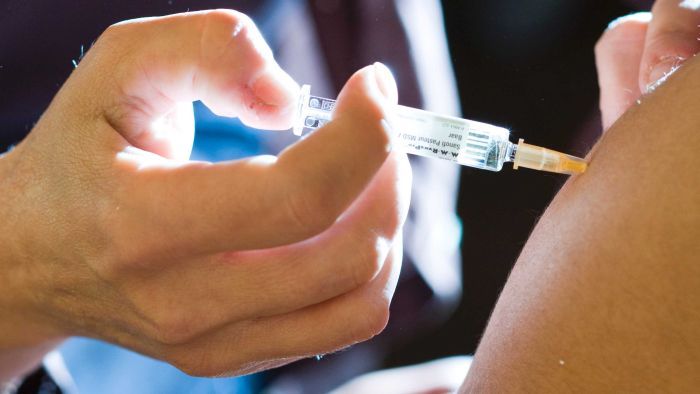Updated
April 23, 2020 19: 28: 11
There’s another potential coronavirus vaccine taking that next step to human trials this week.
This time it’s in the UK, where Oxford University researchers have been working on it since January.
It targets the “spikes” on the virus surface with antibodies that stick to them, then the immune system can attack.
Just over 500 people are likely to take part in this trial, all on a voluntary basis.
So, how are these people selected? Why do they do it? And how far away are these vaccines for the rest of us?
How will these initial human trials work?
Whether it’s for a new vaccine or potential drug treatments to tackle COVID-19, trials pass through similar stages.
The first time human testing becomes involved is during phase one, but there’s a lot of laboratory work that goes in before it even gets to this stage; selecting the right compound and gauging how toxic it is.
But, researchers at that preclinical stage still don’t know how people will respond. Cue the small group of healthy volunteers for the first round of testing.
Dr Adam Stewart, from the University of Queensland’s Centre for Clinical Research, said there’ll be regular blood tests to measure how the immune system is responding, looking for antibodies or T-cells to develop.
“Then you want to know how long they stick around, and if they’re going to be long-lasting and effective,” Dr Stewart said.
He said they’re looking at safety primarily at this stage, but also that a vaccine triggers a “rigorous immune response”. That means those antibodies are actually targeting the virus.
“That’s when you move it along the pipeline into the phase two, p

